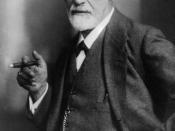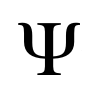Psychological theories � PAGE \* MERGEFORMAT �7�
Running head: PSYCHOLOGICAL THEORIES
Psychological theories
What we know about humans thought and behavior is due to many psychological theories. Some theories have remained widely excepted throughout the years; others have been rejected; while others have had to adjust to the way that society has changed over the years. All have contributed to the understanding of humans thought and behavior that we have today. This paper will review several of these theories.
Behaviorism is a theory of learning based on the idea that behavior is learned through conditioning (Wagner, 2009).There are two major types of conditioning; Classical and Operant. Classical conditioning is a neutral stimulus would bring on the response after it is conditioned to do so. For example, many dog trainers use classical training to help train pets by using a clicker method. The animal is trained to react to the sound of the clicker, knowing that if they do what they are supposed to at the sound, then they will receive a treat.
You will also see classical conditioning in a school when the bell rings, children will leave the class that they are in and go elsewhere. Operant conditioning is a response is due to the consequences whether it is good or bad (Feldman, 2008). Operant conditioning is a way of learning by consequence. Foe example: an action which is rewarded is more likely to be repeated, along with an action that is punished is less likely to be repeated. To apply this to an example of human behavior, young children may have shaped behavior due to operant conditioning; where desirable behavior is rewarded by giving them a toy, the behavior is being positively reinforced and is likely to occur. If a young child behaves in an undesirable way,


